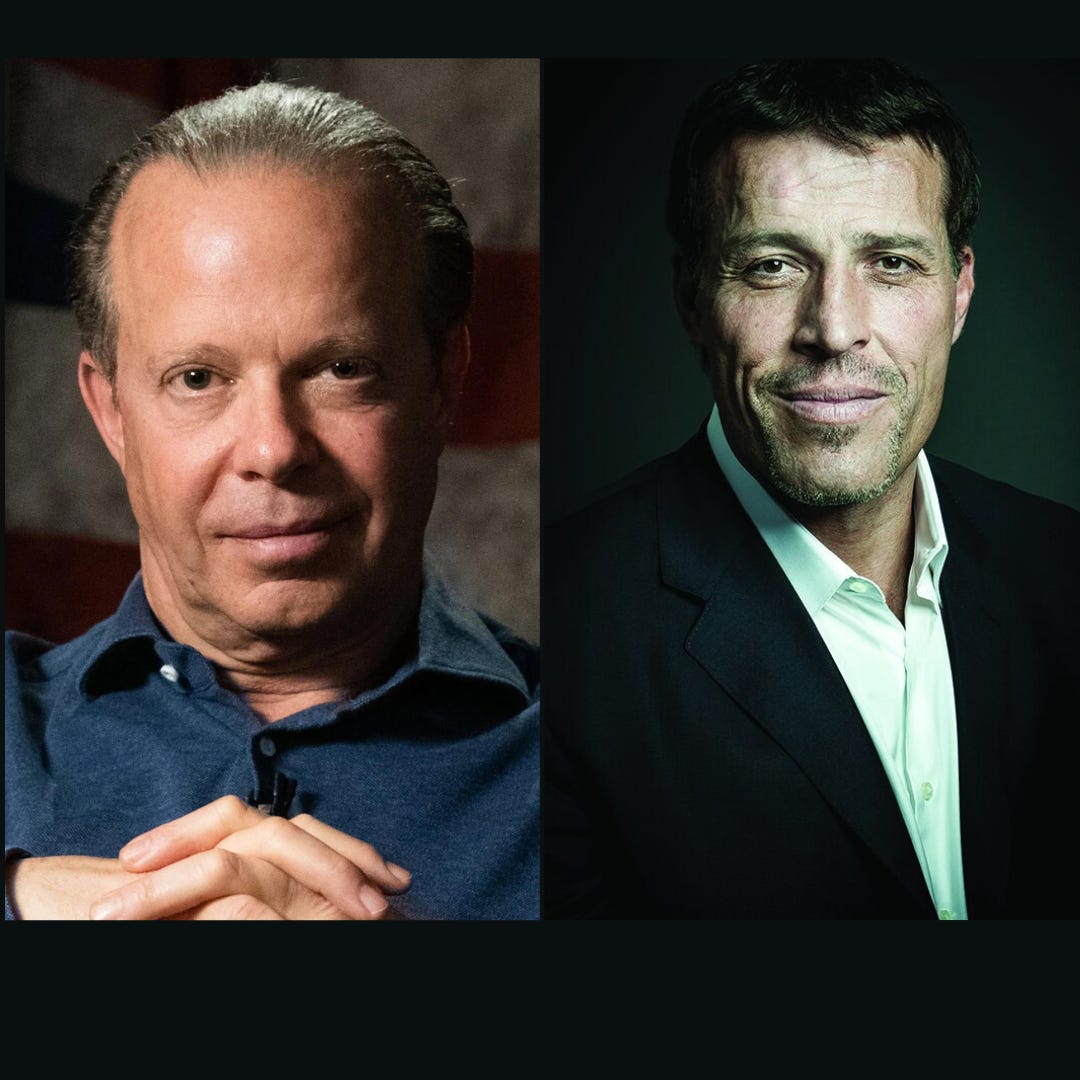Waiting for the Miracle
My struggles with Joe DiSpenza, Tony Robbins, and other post-New Age consciousness gurus
When you've fallen on the highway
And you're lying in the rain,
And they ask you how you're doing
Of course you'll say you can't complain
If you're squeezed for information,
That's when you've got to play it dumb
You just say you're out there waiting
For the miracle, for the miracle to come- Leonard Cohen
Over the last week or so, I keep toggling between two completely different authors, feeling the tension between them, seeking to resolve something within myself. One of these thinkers, Joe DiSpenza, represents the post-New Age consciousness culture which, in America, continues the legacy of the “New Thought” movement that my former editor, Mitch Horowitz, often promotes (The Power of Positive Thinking, Think and Grow Rich, etc). The other, Clive Hamilton, is an Australian author who writes about the climate emergency we confront as a species.
Particularly, I have been reading DiSpenza’s Becoming Supernatural and contrasting it with Hamilton’s Requiem for a Species. It could have been Tony Robbins versus John Michael Greer, or David Wallace Wells versus Deepak Chopra. There were many options.
DiSpenza is immensely popular among many people in my extended community. Friends pay thousands of dollars to attend his workshops, which are thronged with participants, netting him tens of millions. If I had to put a number on it, I would say he is 70% a classic American snake oil salesman/con artist, while offering 30% of something important and valuable (probably that is how all truly great cons work).
When it comes to these post New Age consciousness gurus with massive followings, we almost never find an impartial critical analysis. Critics either dismiss their work out of hand, or their devotees lionize them. For example, with DiSpenza, it is easy to denigrate him by pointing to the fact that he is only a chiropractor by training yet pretends to be a world-class scientist (if a maverick), that he offers the results of scientific studies he claims he has performed on his workshop participants but without any rigor (double-blind, etcetera) or academic support.

Yet as I was feeling particularly infuriated with DiSpenza’s subtle, incessant self-promotion in Becoming Supernatural, I decided to watch one of his videos on “brainwashing” yourself to achieve success, and I found it an immediately helpful reminder. In the video, he cleverly redefines “success,” decoupling it from ideas of financial abundance or fame and redefining it as making progress toward the goal you have set for yourself.
One of his main, endlessly repeated ideas is that we continuously program ourselves with our thoughts — if we inherited negative thought patterns, we will unconsciously perpetuate them. This leads to negative outcomes. Acting unconsciously, we will find ways to repeat familiar negative situations we have known in the past. We become addicted to sadness, depression, self-hate, etcetera, seeking bigger hits of what Candace Pert calls “molecules of emotion.”
This resonates for me. I realize that I inherited a legacy of self-defeating, self-sabotaging thoughts that unconsciously impelled me, in the past, to act self-destructively. I am still seeking to deprogram myself from these distorted patterns. It seems a lifelong endeavor.
A part of me deeply identifies with being the rebel, the outsider, the exile. If I get accepted into any mainstream or institutional structure, I tend to feel uneasy, as if something is wrong. This is also because I feel that something is deeply off about our society — its values, beliefs, practices — and therefore, I find those easily assimilated or welcomed into it are not to be trusted.
In Becoming Supernatural, DiSpenza follows a tried-and-true formula that seems quite obvious and fake to me. Some of this is familiar from Ekhart Tolle’s The Power of Now, which also combines useful, even crucial insights with material I find trite, self-aggrandizing, and carefully calculated. Like Tolle, DiSpenza recounts his own mystical revelations, using the “humble brag” technique to reinforce the idea that he has attained a level of spiritual mastery and (implicitly, a bit like Jesus) now has power to make miracles. And you can, too, if you just follow him.
Keep reading with a 7-day free trial
Subscribe to Liminal News With Daniel Pinchbeck to keep reading this post and get 7 days of free access to the full post archives.


